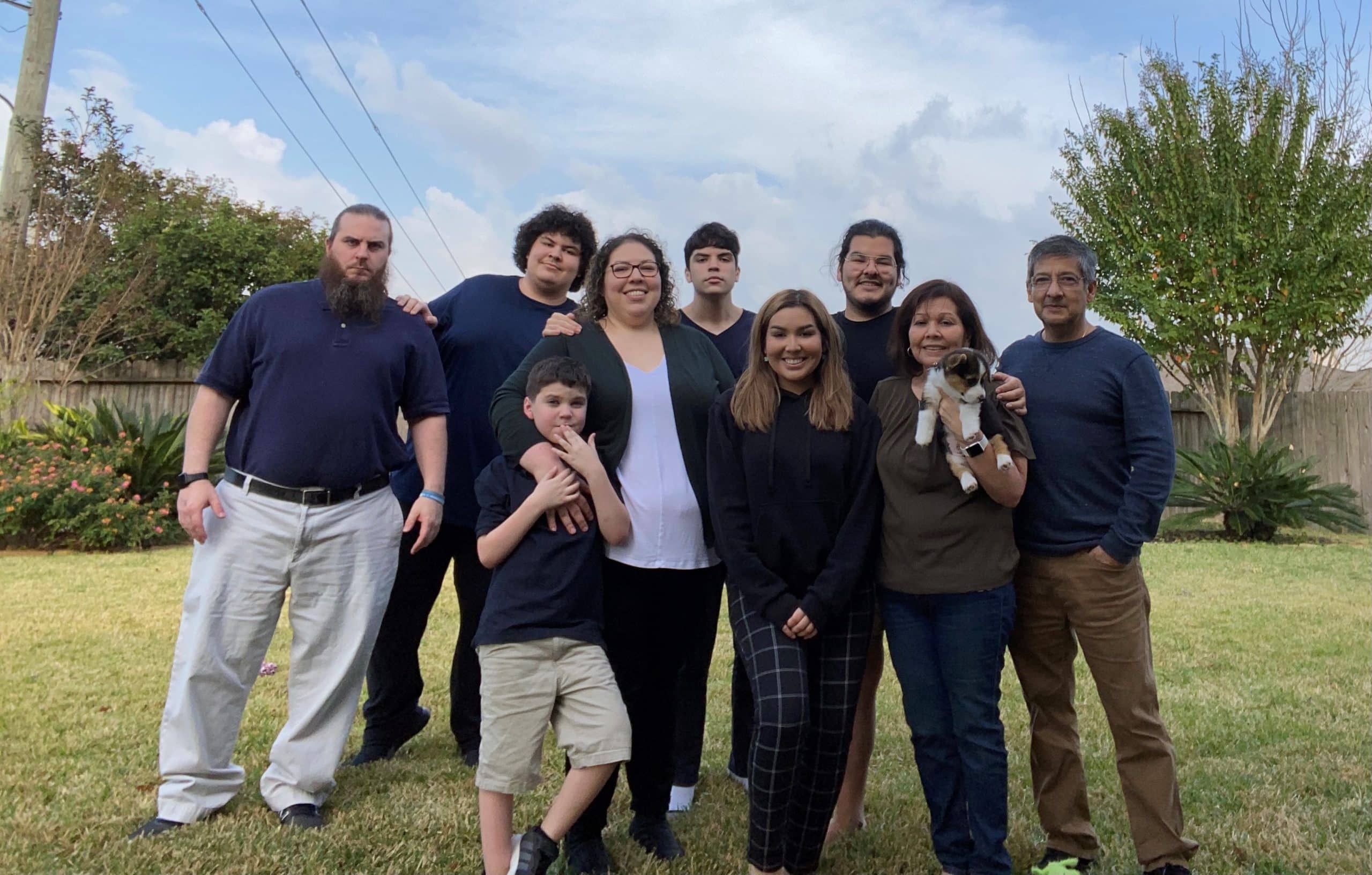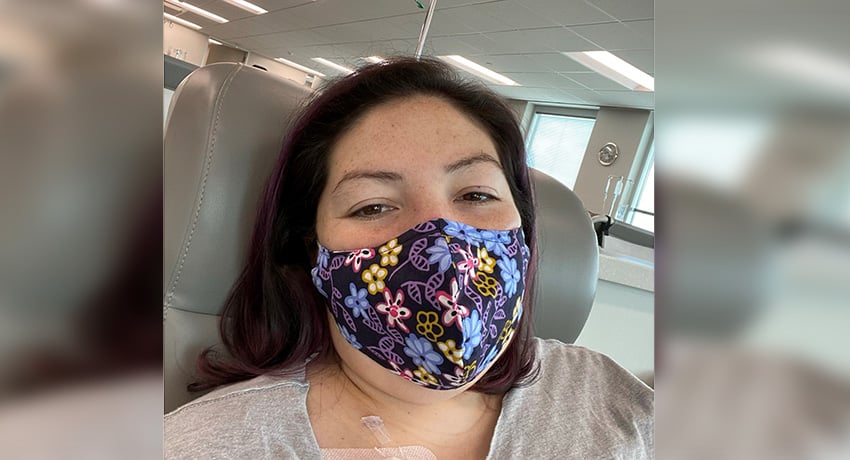At 39 years old, sitting in an oncologist’s office, Samantha Leos could barely process the words she just heard: “You have cancer.” She is one of the many in a growing statistic of young individuals being diagnosed with colorectal cancer. With its symptoms presenting as an upset stomach or issues with hemorrhoids, Leos was blindsided.
Diagnosis
A self-described problem solver, Leos remained calm as her doctor told her the rectal cancer was at stage 3. She was practical and asked questions about her treatment options, taking in as much information as she could during the moment. However, as soon as she was alone, her composure faded.
“It wasn’t until I was in my car and giving the news to my mom that I broke down and had a panic attack, not from the fear of what would happen to me, but what this diagnosis would mean to my family and children,” said Leos.
She had two children in high school, one in the third grade, and two siblings in college – she worried about them being diagnosed with cancer in the future.
Being in stage 3 meant that Leos’ rectal cancer had spread to her lymph nodes. However, it had not spread to her other organs.
Treatment
Leos’ medical team included many specialists, one being her UT Physicians colorectal surgeon, Mark J. Pidala, MD. Pidala and her other experts concluded the best course of treatment would be for her to undergo preoperative chemotherapy and radiation.
“The chemotherapy and radiation prior to surgery helps to shrink the tumor, and oftentimes no cancer is found after we surgically remove the affected area,” said Pidala, who is an assistant professor of surgery at McGovern Medical School at UTHealth.
After a few months of treatment, Leos was ready for surgery.
The procedure to remove her mass lasted several hours. Recovery in the hospital took a few days, the first couple of which Leos says were difficult.
“The first two days after surgery I was in a lot of pain and could barely move, but it was important for my recovery that I walked around a bit,” said Leos. “By day three, the pain was manageable and by day five, I was able to shower on my own.”
As a result of her surgery, Leos had to have a temporary ileostomy placed. An ileostomy is a surgically created opening in the stomach region that allows bodily waste to bypass the colon and rectum, and empties directly into an attached pouch.
“Samantha’s ileostomy will be reversed through a second surgery, but in the meantime it allows for all the work we did to reconstruct her colon and rectum time to heal,” said Pidala.
Recovery
Leos is still considered in the postoperative recovery phase, but has a positive outlook ahead of her. Pidala believes that her case is a great lesson for others.
“Don’t ignore worrisome signs or symptoms because you’re embarrassed or dismissive,” he said. “The best chance to cure rectal cancer is to find it early.”
The American Cancer Society recommends individuals get screened at age 45 if they do not have the following high-risk indicators:
- Family history of colorectal cancer
- Personal history of the illness, certain types of polyps, or inflammatory bowel disease
- Possible or confirmed hereditary colorectal syndrome
- Previous radiation treatment to the abdomen or pelvic area for prior cancer
Those with high-risk factors should be screened before the age of 45.
Leos says she’s proof that cancer doesn’t wait for a certain age and urges others to pay attention to what your body is trying to tell you.
To others going through a similar journey, her advice is to not dwell on the negative.
“Since being diagnosed and going through treatment, I find myself reaching out to people and living in the moment. I spend less time looking at the world through my phone or watching life unfold on TV,” said Leos. “It was a hard lesson to have, but one I definitely learned from.”



